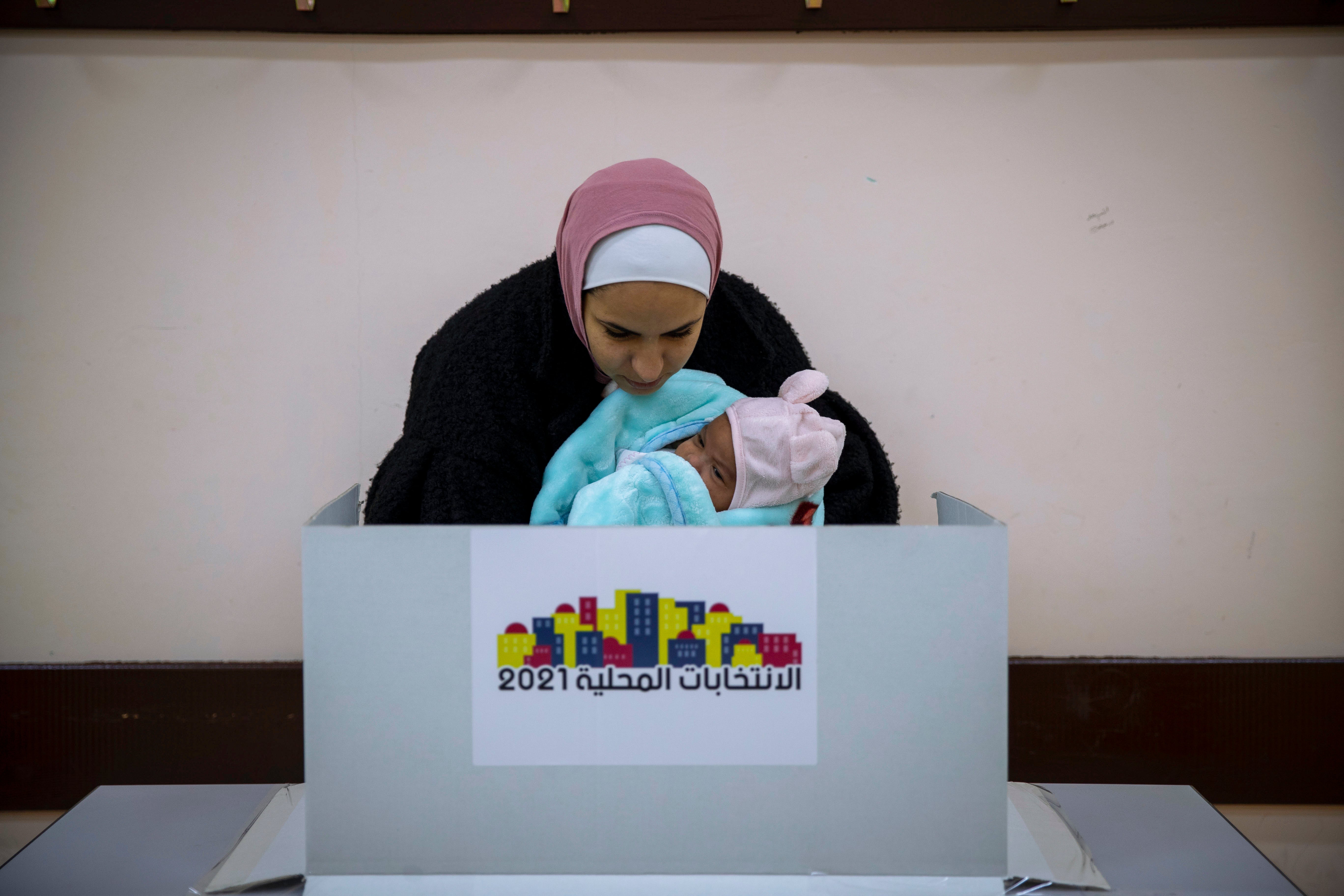Some 400,000 Palestinians vote in rare municipal elections
Palestinians are finally taking part in municipal elections across the occupied West Bank following months of simmering anger towards their government’s cancellation of parliamentary and presidential elections earlier this year

Your support helps us to tell the story
From reproductive rights to climate change to Big Tech, The Independent is on the ground when the story is developing. Whether it's investigating the financials of Elon Musk's pro-Trump PAC or producing our latest documentary, 'The A Word', which shines a light on the American women fighting for reproductive rights, we know how important it is to parse out the facts from the messaging.
At such a critical moment in US history, we need reporters on the ground. Your donation allows us to keep sending journalists to speak to both sides of the story.
The Independent is trusted by Americans across the entire political spectrum. And unlike many other quality news outlets, we choose not to lock Americans out of our reporting and analysis with paywalls. We believe quality journalism should be available to everyone, paid for by those who can afford it.
Your support makes all the difference.Palestinians took part in rare municipal elections across the occupied West Bank on Saturday, following months of simmering anger towards their government and the cancellation of promised parliamentary and presidential elections earlier this year.
Some 400,000 Palestinians are eligible to vote in the election where they will select representatives for 154 village councils under the jurisdiction of the Fatah-controlled Palestinian Authority Municipal elections are typically held every four to five years and last took place in 2017.
The increasingly unpopular president of the Palestinian Authority, Mahmoud Abbas confined the election to rural municipalities, postponing voting in the West Bank's major cities where anger towards his ruling Fatah party is most acute.
Saturday’s elections are also being boycotted by the militant group Hamas which governs the Gaza Strip. Hamas’s spokesman, Abdulatif al-Qanou, told the Associated Press that the group wants parliamentary and presidential elections and considers holding the municipal vote alone a violation of previous agreements. Today’s vote does not “satisfy the inspiration and needs of the Palestinian people.“
The popularity of the Palestinian government has plummeted since Abbas canceled long-awaited legislative and parliamentary elections in April. Abbas blamed the cancellation on uncertainty around whether Palestinians from east Jerusalem would be able to vote, although critics accused him of postponing out of fear that his party would lose to Hamas.
Popularity for the militant group has surged among Palestinians in the West Bank and east Jerusalem since May’s 11-day war, with many accusing the Palestinian Authority of doing little to aid their struggle against Israeli occupation. Anger towards the government has been further inflamed by the growing crackdown on political dissent, following the death of Palestinian Authority critic Nizar Banat, who died after being beaten by Palestinian security forces. The event ignited widespread demonstrations calling for Abbas' resignation.
The Palestinian Authority administers parts of the occupied West Bank through agreements signed with Israel during the height of the peace process in the 1990s. In 2007 Hamas drove Abbas’ forces out of Gaza when it seized power after winning parliamentary elections. Israel captured the West Bank in the 1967 Mideast war, along with east Jerusalem and the Gaza Strip, territories Palestinians seek for a future state.
—
Associated Press writer Fares Akram in Gaza City, Gaza Strip, contributed to this report.